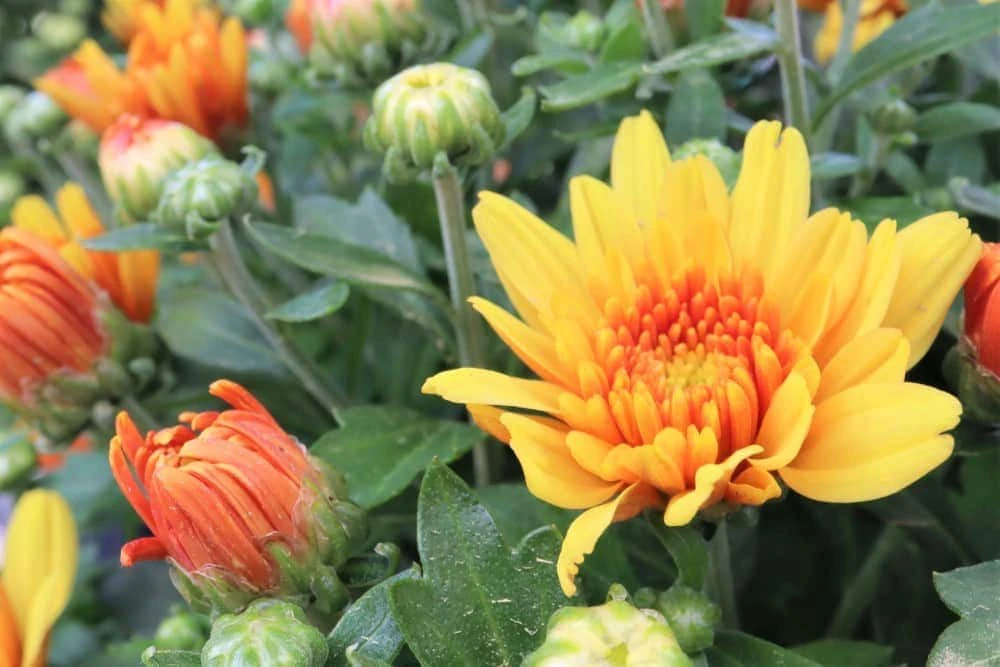by Amanda Rose Newton
Now that it is September in zone 9b Florida, the intense heat of the summer will soon be behind us.

For us gardeners, this means we can get back outside and start planning our edible gardens. Before you do so, consider doing a little cleaning around the landscape. Doing a little bit of work now can save you hours once your garden is in full swing.
If cleaning happens to not be your favorite chore (and really, who loves it?) just remember it is the equivalent of studying over time rather than cramming the night before the exam. You will be glad you started early!
Fall Garden Cleaning Tips
With temperatures reaching the mid-90s in August, you may have let your garden be a bit more overgrown than usual. Now is the time to survey the landscape and remove any debris such as fallen leaves, excess weeds, and trim back unruly shrubs and trees. Not only will it make your garden more aesthetically pleasing, but it will also help eliminate places where disease and pests can persist season to season.
Putting down a fresh layer of mulch will also help maintain soil moisture and temperature with the added benefit of reducing weeds.
Garden Bed Care
Just as in the scenario above, plants with dead material should be removed in order to reduce hiding places for pests and diseases. Plants that are diseased should also be taken out, bagged, and thrown out. While dead plant material is a great addition to the compost bin, be sure to not include those with diseases as the spores can persist throughout the season.
Compost piles do not put out enough heat to sufficiently kill most pathogens such as fungi, bacteria, and viruses that may be the cause of disease. Fruit and berries (even frond seed pods) can attract pests to breed. Many flies, in particular, like to lay their eggs in fallen, rotting fruit, which keeps the pest cycle going month after month.
Crop Rotation
Rotating the vegetables and fruit you plant in your edible beds is a great way to reduce and break the disease cycle. Though commonly used in large-scale agriculture, it can easily be replicated by the home gardener. An example rotation would include starting with a heavy feeder, such as tomatoes, and moving to a light feeder such as lettuce. Once the lettuce has been harvested, a legume (bean of any kind) can be planted to fix nitrogen and reinvigorate the soil with needed nutrients taken up by the tomato and lettuce. Not only does it help reduce the amount of fertilization you must do, switching out your plant families helps prevent diseases from constantly plaguing certain plants.
Sample Crop Rotation:

Ornamental Plant Care
Removing weak sections of hedges also does wonders to reduce bringing pests and diseases to the yard. Most diseases are opportunistic and tend to favor easy targets, like your hedges with dead sections.
If your lawn is in pristine condition, consider saving your clippings to act as a green mulch. When mixed with chopped up leaves, this creates a green mulch that can be added to your garden beds. Not only will it add nutrients, but it will also serve a similar role to wood chip mulch and become a weed block.
When you find yourself in the mood to weed, have at it! Removing weeds helps improve the appearance of the garden and more importantly, prevents serving yet another harboring place for plant disease and pests to persist. In addition, they are known to raise humidity if left planted, which invites fungi to grow. Remove all weeds showing signs of disease immediately and destroy them in the same manner as plant material.
Sanitize It!
Sanitation, a term we are all too familiar with during the current state of our world, also plays a role in maintaining a happy, healthy garden.
Your garden equipment can end up being an unintentional disease spreader. Be sure to disinfect tools such as pruners, trowels, and loopers between plants. A simple bleach water solution (1 part bleach to 3 parts water) will kill any bacteria or fungi present on the tool.
Practicing these simple steps year-round will not only improve the way your garden looks, but it will reduce your chore load from season to season.


